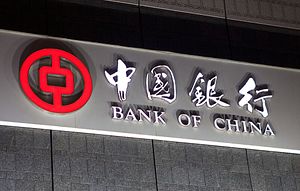A World Bank report last week warned China that it must focus on reforming its financial sector rather than interfering in it, but retracted the statement days later after receiving pressure from the Chinese government to remove the section. The section stated, in strong language, that China must reform its state-dominated financial system to prevent the reversal of growth gains it has made. While the financial system does require reform, we disagree with the initial World Bank report that slower reforms in this sector will reverse growth.
The report in its initial form received considerable buzz among international financial analysts, as it stated the need for “a fundamentally reconfigured role of the state in the financial system.” “Wasteful investment, overindebtedness, and a weakly regulated shadow-banking system” present daunting problems to China’s financial system, the report went on to say. This departs from typical World Bank reports that are much more mildly stated, and its accusatory tone was unhappily received in China.
The points that the controversial section of the report made do have some merit: China’s financial sector is indeed in need of further reform, there is no doubt about that. As the recent severe stock market downturn and the real estate price dive before that have revealed, volatility and excess demand for financial investment present serious problems in the economy right now. The constrained banking system, dominated by the state sector, provides insufficient funds to borrowers and insufficient yield to depositors, failing to embrace market forces. Issues in the banking sector have presented problems in China for decades.
However, China’s financial sector has been able to overcome its debt and regulation problems precisely with strong government intervention. The presence of the government has implied that Beijing is willing to backstop certain debts and implement regulations or mandates as needed. To a great extent, the financial system would not be able to function this smoothly without government participation. While moving toward a market-based system with proper risk controls in place would greatly benefit China’s financial system, it cannot reasonably argued that China’s slow financial reform process will reverse decades of growth as the World Bank report had claimed.
Reforms in the financial sector will take some time to implement, since currently, China’s leadership has its hands full, and is perhaps attempting to pull off too many market interventions and reforms at once. The real economy is down, and the financial economy, in particular the stock market, is also on the decline. New sources of growth are not on the horizon, manufacturing and services growth have slowed, and jobs for new university graduates have been increasingly difficult to come by. When and whether China can pull off its extensive list of targeted reforms is increasingly uncertain.
China’s leadership has embraced declining growth figures as the “New Normal,” something that it had years ago predicted would occur. Although the downturn of the real economy and the sharp asset price declines cannot be viewed as intentional, they have been accepted and are being dealt with by the state bodies. Certainly it is true that China’s financial sector needs an overhaul, but it is not in jeopardy as some have implied. Rightly, the inflammatory text in the World Bank report was removed not only because it was emphatic, but also because it was problematically hyperbolic.

































